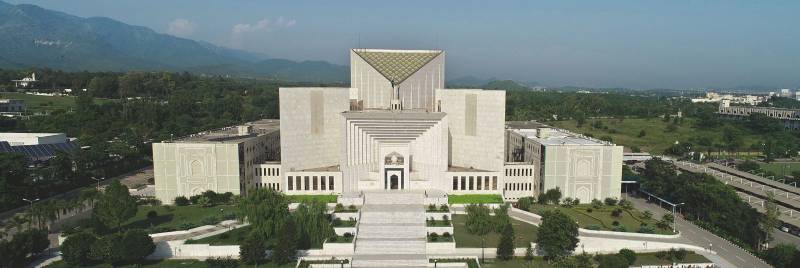
The Sindh Bar Council on Wednesday moved the Supreme Court of Pakistan over the controversy raised by President Dr Arif Alvi that he had returned the Official Secrets Act and the Pakistan Army Act to the parliament without signing them.
In a Constitutional petition submitted in the Supreme Court by the council through its Chairman Naeemuddin Qureshi and Vice Chairman Azhar Hussain Abbasi via Advocate Salahuddin Ahmad, it raised questions of law, including whether the two laws are a "nullity and non-est for lack of presidential assent?"
It further asked whether the amendments made to the Army Act can be considered constitutional and if they violate Articles 4, 10-A, 18, 19 and 19-A of the Constitution.
Similarly, they asked whether amendments made to the Official Secrets Act violate Articles 10-A, 16, 19 and 19-A of the Constitution.
The petition also raised the question of whether civilians can charged and then tried under military laws and before military tribunals.
The petitioners urged the court to strike down the two amendments since they lacked the assent of the President as needed under Article 75 (1) of the Constitution.
Moreover, they asked the court to deem the trial of civilians under military laws and before military tribunals as illegal.
On August 24, President Alvi had kicked up a storm when he publicly declared that he had allegedly be subverted by his staff and that the amendment bills to the Official Secrets Act and the Pakistan Army Act, passed by the parliament and sent to him, were returned unsigned by him.
His reaction came after the government issued gazetted notifications for both bills that they had become law. The law ministry noted that they did not receive the signed copies of the bills but they became law because President Alvi did not act within the stipulated 10 days on the two laws and that they became law by default as per relevant constitutional provisions.

